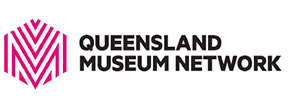Blog Archives
Carl Zoeller & Co
While undertaking the significance assessment of the collection at Greycliffe Homestead recently (see here), I came across a small stoneware bottle of a patented cold branding solution. While the story of the branding solution itself is interesting, this little bottle has surprising links to much wider stories in Queensland’s history.
The firm of Carl Zoeller & Co was established in Brisbane in 1895 by German immigrant Carl Zoeller. Zoeller had arrived in Australia from his native Germany ten years before. Initially, the business imported and supplied surgical instruments, but later branched into veterinary supplies and began manufacturing some of their own products. By 1916, the firm employed 35 people and had a prestigious Queen Street address. Zoeller married in Australia, had four children, and was naturalized in 1908.

The bottle of cold branding solution at Greycliffe Homestead
This cold branding solution was patented by New Zealand firm De-Lisle-Luttrell in 1904, and was promoted as a humane alternative to fire branding. The major attraction of chemical branding solutions, however, was that they would leave the skin undamaged for future use as hides. At the time it was estimated that the loss of value in hides damaged by fire branding was £100,000 annually in Queensland. Zoeller became the main Queensland importer of the De-Lisle-Luttrell product, and spent three years and considerable expense in extensive testing before marketing the product.
Zoeller’s success began to unravel with the outbreak of war with Germany in 1914. Following an order sent to a Stockholm firm for a small number of German made surgical instruments, Zoeller became the first person to be convicted under the Trading with the Enemy Act 1914. Zoeller, who had always been a staunch supporter and promoter of his adopted land, was fined £100. He remained insistent that his allegiance was to Australia, publishing in The Brisbane Courier in December 1915 that, “Messrs. Carl Zoeller and Co., Ltd., announce that they are a purely Australian house, that every penny of capital is Australian money, and that every penny of the firm’s profits is faithfully spent in this country.”

Zoeller’s internee identification photograph from Holdsworthy
Zoeller’s naturalization and allegiance to Australia were not enough to save him from the wave of suspicion that permeated Australian society at the time, and in March of 1916 Zoeller was suddenly arrested, together with two other prominent German businessmen in Brisbane, and sent to Holsworthy internment camp. Zoeller remained interned for the duration of the war, and the separation from his family was clearly hard to bear. But worse was yet to come. In 1919 his naturalization was revoked and he was deported to Germany, leaving his family behind in Australia. Zoeller returned to a Germany that had been politically and economically crippled by the past five years of conflict, and the prospects for a man who had not been resident there for over 30 years were not bright.
Zoeller made numerous applications to return to Australia and be reunited with his family, all of which were denied. Applications for citizenship to New Zealand were also unsuccessful. He finally received citizenship in South Africa, where he again set up a business. Continued separation from his family and the anger and resentment he felt for his years of internment overwhelmed him however, and in November of 1926 he took his own life. Zoeller and his family are just some of the many uncounted victims of the fear and prejudice created by war.
This bottle is an interesting example of how a seemingly mundane object can unlock many more powerful stories. Queensland Museum also holds some items relating to both Zoeller’s commercial and private life, including some touching mementos from his time in internment.





